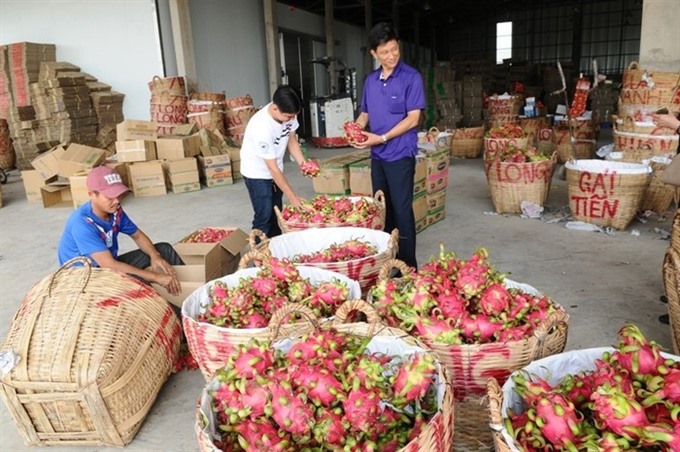In 2019 South Korea will toughen rules related to use of pesticides for agricultural products it imports, and Vietnam is expected to be affected.

In 2019 South Korea will toughen rules related to use of pesticides for agricultural products it imports, and Viet Nam is expected to be affected.
With the advent of the Viet Nam – South Korea Free Trade Agreement in 2015, it has become much easier for Vietnamese agricultural and seafood products to enter the Korean market.
But the new regulations could change things since Viet Nam still uses many types of pesticides in key export products such as coffee, peanut, cashew, and fruits that it has not registered with South Korea.
Korea has approved a list of 370 kinds of pesticides and all imported agricultural products are carefully checked when they land in its ports.
According to the Korean Trade and Investment Promotion Agency (KOTRA), imports of foods have increased sharply and authorities have to tighten oversight.
In 2016 the country unveiled a pesticides list to improve food safety, applying it now to tropical fruits and various seeds, and it will apply to all agricultural products from the beginning of 2019.
KOTRA also reported that in 2015 – 17 many Vietnamese products were refused entry into South Korea because of high pesticide content or use of unapproved pesticides.
To find a solution, Vietnamese authorities strengthened their ties with their Korean counterparts.
The Ministry of Agriculture and Rural Development’s Plant Protection Department has worked with the Korean Animal and Plant Quarantine Agency to supervise processing of dragon fruit and mango before exporting to that country.
Viet Nam has also provided all information about star apple, longan, litchi, and rambutan to the agency.
“To help Vietnamese enterprises export agricultural products to South Korea, the Ministry of Agriculture and Rural Development has made regulations for the registration, manufacturing, trading, and usage of pesticides more stringent and set up propagation models to promote biological pesticides, targeting 30 per cent use of biological pesticides by 2020,” Bui Thanh Huong of the Plant Protection Department told Sai Gon Giai Phong (Liberated Sai Gon) newspaper.
“The Department has stepped up oversight of the use of pesticides and provides companies with information about new food safety regulations in importing nations.” – VNS





